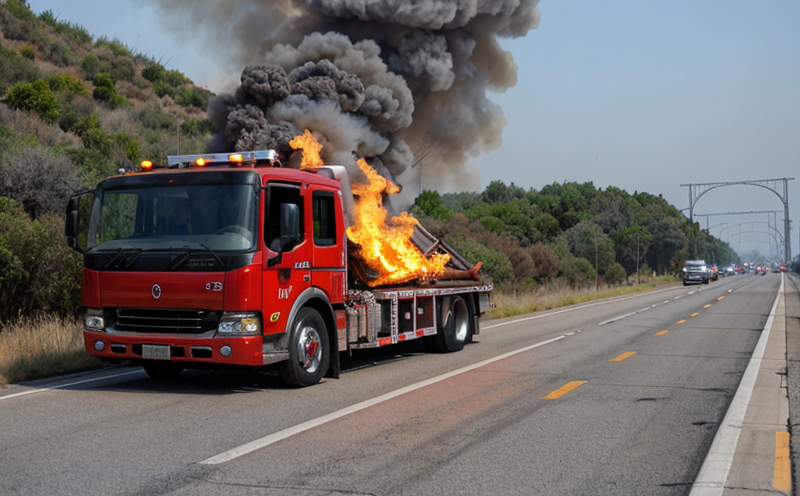Fire Safety in Transportation: A Comprehensive Guide
The transportation industry has become increasingly complex, with various modes of transportation such as cars, buses, trains, ships, and airplanes carrying millions of passengers every day. With this growth comes an increased risk of fire-related incidents, which can have devastating consequences for passengers, crew members, and the environment. In this article, we will explore the importance of fire safety in transportation, the common causes of fires on vehicles, and the measures that can be taken to prevent or mitigate these incidents.
Common Causes of Fires in Transportation
Electrical Malfunctions: Electrical malfunctions are a leading cause of fires on vehicles. This can include faulty wiring, short circuits, or overheating electrical components such as batteries or alternators. To minimize this risk, manufacturers should ensure that all electrical systems are properly designed and tested before being installed on a vehicle.
Fuel Leaks: Fuel leaks can be caused by damaged fuel lines, loose connections, or improper maintenance. These leaks can ignite nearby flammable materials, leading to a fire. Regular inspections of fuel systems and prompt repairs of any damage can help prevent these incidents.
Preventing Fires in Transportation
Regular Maintenance: Regular maintenance is crucial for preventing fires on vehicles. This includes checking the condition of electrical wiring, inspecting fuel lines and connections, and replacing worn-out parts such as brake pads or tires.
Fire Suppression Systems: Fire suppression systems are designed to quickly extinguish fires before they spread. These systems use a variety of agents, including water, foam, or dry chemicals, to suppress flames. Vehicles equipped with fire suppression systems can significantly reduce the risk of damage and injury in the event of an electrical or fuel-related fire.
Fire Safety Measures on Different Modes of Transportation
Cars: Cars have become increasingly complex over the years, with more electronic components being added to each vehicle. This has led to a higher risk of electrical fires. Manufacturers should ensure that all electrical systems are properly designed and tested before being installed on a vehicle.
Buses: Buses often carry large numbers of passengers, making them particularly vulnerable to fire-related incidents. Regular inspections of electrical wiring and fuel lines can help prevent these incidents.
Trains: Trains have a higher risk of fire due to the presence of flammable materials such as coal or oil. Fire suppression systems should be installed in trains that carry these types of cargo.
Fire Safety Regulations
The transportation industry is subject to various regulations related to fire safety, including:
The Federal Motor Carrier Safety Administration (FMCSA) regulates fire safety on buses and trucks
The National Transportation Safety Board (NTSB) investigates all major transportation accidents, including fires
The International Maritime Organization (IMO) sets standards for fire safety on ships
QA Section
1.
What is the most common cause of fires in transportation?
A: Electrical malfunctions are the most common cause of fires in transportation.
2.
How can I prevent electrical fires in my vehicle?
A: Regular maintenance, such as checking electrical wiring and inspecting fuel lines, can help prevent electrical fires.
3.
What should I do if I experience a fire on board?
A: In the event of a fire, follow evacuation procedures and call emergency services immediately.
4.
Are fire suppression systems effective in preventing damage to vehicles in the event of a fire?
A: Yes, fire suppression systems can significantly reduce the risk of damage and injury in the event of an electrical or fuel-related fire.
5.
Who regulates fire safety on buses and trucks?
A: The Federal Motor Carrier Safety Administration (FMCSA) regulates fire safety on buses and trucks.
6.
What is the role of the National Transportation Safety Board (NTSB) in investigating transportation accidents, including fires?
A: The NTSB investigates all major transportation accidents, including fires, to identify causes and make recommendations for improving safety.
7.
Can ships carry flammable materials such as coal or oil?
A: Yes, ships can carry these types of cargo, but they must meet strict regulations related to fire safety.
8.
What should I do if my vehicle catches on fire while driving?
A: Pull over to a safe location and call emergency services immediately. Do not attempt to extinguish the fire yourself.
9.
Can I use water to extinguish an electrical fire in my vehicle?
A: No, using water can actually make the situation worse by spreading the electrical current and causing further damage.
10.
How often should I inspect my vehicles electrical wiring and fuel lines?
A: Regular inspections of electrical wiring and fuel lines should be performed at least once a year, or as recommended by your manufacturer.

































